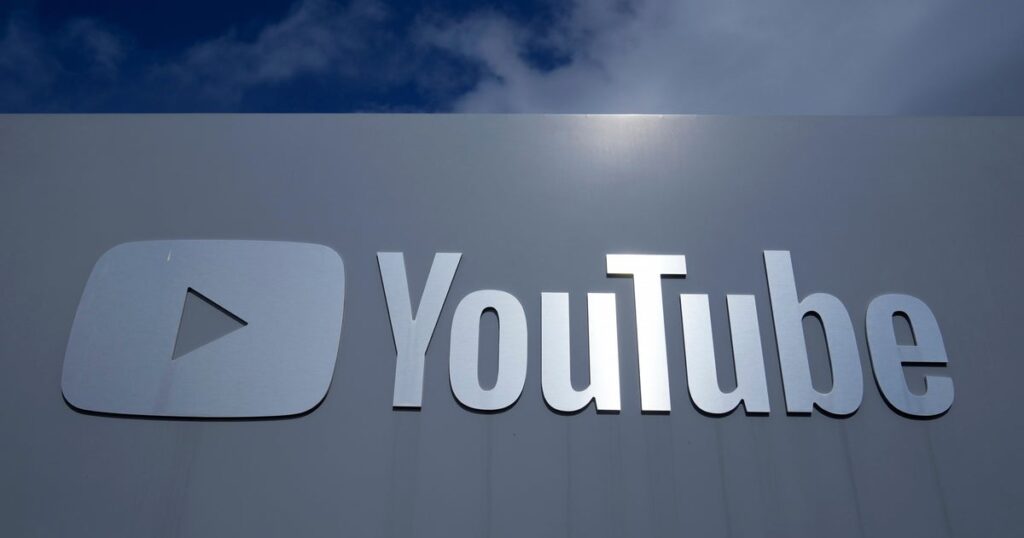In a significant policy update, YouTube announced plans to reinstate accounts that were banned for violating now-expired COVID-19 and election misinformation guidelines. This decision reflects Alphabet’s commitment to free speech amidst growing scrutiny from conservative figures and the Biden administration’s approach to content moderation. As the landscape of online discourse continues to evolve, YouTube acknowledges the substantial role that various creators play in civic engagement and aims to foster a more inclusive environment on its platform.
| Article Subheadings |
|---|
| 1) YouTube’s New Stance on Banned Accounts |
| 2) The Role of Content Moderation in Today’s Politics |
| 3) Reactions from Conservative Voices |
| 4) The Biden Administration’s Content Policies |
| 5) The Future of YouTube and Its Creators |
YouTube’s New Stance on Banned Accounts
On Tuesday, YouTube, under the parent company Alphabet, declared its intention to reinstate accounts that had been banned for violating misinformation policies concerning COVID-19 and election-related content. This policy change is seen as a move towards reinstating creators who were previously removed due to now-obsolete rules. The company stated, “YouTube will provide an opportunity for all creators to rejoin the platform if the Company terminated their channels for repeated violations of COVID-19 and elections integrity policies that are no longer in effect.” This decision highlights a shift in content moderation strategies as YouTube aims to adapt to changing political contexts.
The Role of Content Moderation in Today’s Politics
Content moderation has become a focal point in contemporary political dialogue. As tech companies faced heightened scrutiny during the pandemic and after the 2020 election, they adopted stricter rules to combat misinformation. This crackdown was met with criticism from various stakeholders, including former President Trump and other conservatives, who argued that such measures stifled right-leaning voices. YouTube’s recent decision signifies a broader trend among tech giants to reassess their policies regarding political content moderation, particularly as they navigate the complex landscape of public opinion and regulatory pressures.
Reactions from Conservative Voices
In light of the reinstatement announcement, many conservative figures have expressed optimism about the renewed opportunity to re-engage with their audiences on YouTube. Figures such as Dan Bongino, who have faced bans under the previous policies, welcome the decision as a validation of their contributions to social and political discussions. YouTube emphasized its recognition of conservative voices: “We value conservative voices on our platform,” the letter elaborates, underscoring these creators’ significant reach and their roles in civic discourse.
The Biden Administration’s Content Policies
The conversation surrounding content moderation also extends to the Biden administration’s past initiatives aimed at countering misinformation online. Recent claims from a letter by Alphabet attorneys suggest that senior officials exerted pressure on the company to remove pandemic-related videos that complied with their policies. The letter condemns such actions, asserting, “It is unacceptable and wrong when any government… attempts to dictate how the Company moderates content.” This reflects a growing apprehension among tech companies regarding governmental influence over free speech.
The Future of YouTube and Its Creators
As YouTube embarks on this new chapter, the platform’s relationship with its creators is poised for transformation. Reinstating banned accounts may usher in a more vibrant and diverse array of perspectives on political and social issues. Creators who thrive on social media often rely on monetization through platforms like YouTube, which significantly impacts their livelihoods. The ongoing evolution of YouTube’s policies will play a crucial role in shaping the future of its creator economy, especially as expectations from both creators and viewers shift.
| No. | Key Points |
|---|---|
| 1 | YouTube will allow banned creators to return after the lifting of previous misinformation policies. |
| 2 | The company’s decision reflects a commitment to free speech amidst political pressure. |
| 3 | Content moderation is a growing point of contention between tech giants and political entities. |
| 4 | The Biden administration has faced accusations of pressuring tech companies regarding content removal. |
| 5 | The future landscape of YouTube’s creator economy is likely to change based on these policy updates. |
Summary
YouTube’s announcement to reinstate previously banned accounts offers a glimpse into the evolving dynamics of content moderation in the digital age. By acknowledging the importance of diverse voices and the changing political landscape, YouTube aims to foster a more inclusive platform while balancing challenges related to misinformation. The ongoing adjustments in these policies will significantly influence not only the platform’s operational strategies but also the broader discourse surrounding free expression and civic engagement.
Frequently Asked Questions
Question: Why were certain YouTube accounts banned?
Certain YouTube accounts were banned for violating specific misinformation policies related to COVID-19 and election integrity, which are no longer in effect.
Question: What does the reinstatement of banned accounts mean for creators?
The reinstatement allows creators who were previously banned to resume their content creation and monetization efforts on the platform, potentially expanding their reach and influence.
Question: How do political pressures affect content moderation policies?
Political pressures can lead platforms to reassess and modify their content moderation policies, as they navigate the challenges of maintaining free expression while combating misinformation.
